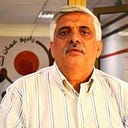Ajplus Should not pay for regional political conflicts
By Daoud Kuttab
I have always been captivated by Ajplus. A genuine professional media outlet that has chosen to speak to young people and individuals on the run in their own language and using a style that is attractive to them. Short to the point videos with large yellow superimposed text that you can read without having the audio on if you were on a crowded train or in the doctor’s waiting room.
I found out about Ajplus from my son who was using it as a role model for the way he wanted to direct young media practitioners in Palestine, at the time, to reach their peers. He introduced colloquial Arabic as part of their effort to produce short videos and he was surprised at the fast rate some of the journalism reports they were making made it. I had no idea who owned or ran Ajplus. Millennials around the world were tuning into this media outlet that understood them and spoke their language.
Later, I learned that one of my journalistic colleagues, Dima Khatib, was running Ajplus and I have since communicated with her about the goals of this youth-oriented outlet. Dima kept telling me about the struggles that she and her team were having to uphold the professionalism of her editorial team. I remember once that she was approached by a famous branded company to run ads before and within the short videos and she refused the financial offer not wanting the public to be forced to watch commercials that would interrupt the flow of the skillfully produced videos.
That said, high-quality journalism is costly. If you don’t want to take a commercial direction you need someone with deep pockets to keep your work going and to ensure that this work is editorially sound and credible. Many western countries have done that through public service broadcasting boards and other mechanisms that ensure the flow of government funding while at the same time granting editorial independence. This is exactly what Dima and her team have succeeded to do with amazing results.
Her success and the many professional awards that Ajplus has won testify for this success. Even at the height of internal problems within the gulf countries, Ajplus would not take an editorial stand and refused to support or oppose any of the warring parties.
AJ+ maintained its professional journalism during a harsh Qatari-Saudi/UAE fight that led to a blockade being imposed on Qatar although the first condition by Saudi/UAE for lifting the blockade was the shutting down of Al Jazeera, including AJ+.
But despite the outward conflict, Ajplus has refused to be pulled into the Qatari-Saudi/UAE fight. When Saudi women won the right to drive and to travel, Ajplus was among the first in 2017 to highlight this success. They have often portrayed successful UAE accomplishments. When Dubai introduced the world’s first smart police station, in 2018 Ajplus was among the first to produce a positive video report about it even while Qatar was suffering from a crippling blockade from its Emirati neighbors.
It was therefore extremely sad and troubling to see this highly successful media operation dragged into a conflict between Gulf Cooperation Countries that they are not involved in. It was even more troubling that the United States used to be the world leader in issues of freedom of expression and press stoop down to the level of singling out this uniquely independent media platform for retribution. Washington moved against Ajplus on the day of the public event in the White House allegedly due to a condition by one of the gulf countries.
It is legitimate to question the ownership of media and the influence of governments on media. A fair and equitable approach in this direction would be welcomed. If that was the case most third world countries state media would fail in the test of whether they are truly public service platform that uses public money on the basis of an independent editorial policy. A quick test of most media in the Arab world and especially the Gulf countries would certainly be welcome and appropriate so long as such a test is done across the board and without any political preference or interference.
The editorial policies of Ajplus, which was initially headquartered in San Francisco put it above and beyond all other media outlets from the gulf region in terms of its strict adherence to principles of professional journalism.
Ajplus won 30 prestigious international journalism awards in 2019 alone among them an Emmy, a Webby and best in News and Media’s Shorty Awards.
AJ+ won three Emmys in 2019. Among them, a Capital Emmy for its story “Inside A Deaf School’s Fight For Civil Rights” The Lone Star Emmy, which recognizes excellence in television broadcasting in the State of Texas, was awarded to AJ+ in the category of Human Interest in December 2019.
AJ+ Español won the second prize in the Walter Reuter Journalism Award
The decision and the timing of the White House to single out Ajplus is utterly a political one without a shred of reasonable justification behind it. Media professionals, media defenders, and all human rights supporters can easily see that this is a political decision taken to please a friendly gulf country in its internal fights against one of its neighbors. It is also a clear part of a political bribe by a US president who is desperate to win the upcoming November presidential at any cost. It is a shame that the cost is abandoning one of the bedrocks of the US democracy, namely the first amendment and the freedom of the press.
Daoud Kuttab is the deputy chair of Vienna-based International Press Institute and an award-winning Palestinian journalist. Follow him on twitter @daoudkuttab
